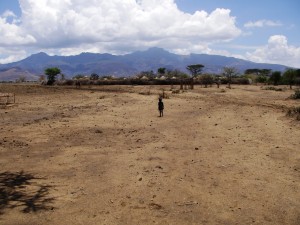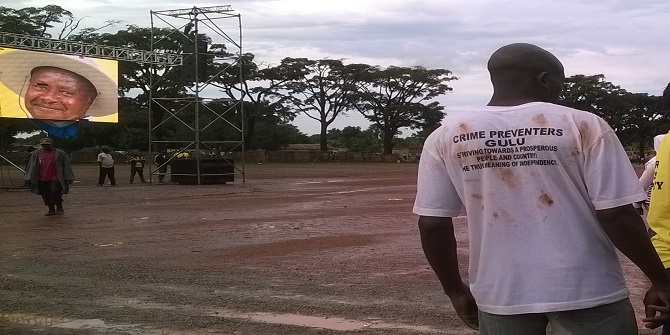
Julian Hopwood, Holly Porter and Nangiro Saum introduce their recent paper examining the security and justice available to Karamojong women following the Ugandan government’s latest disarmament campaign.
Uganda’s neglected Karamoja region is home to around one million of the country’s poorest people. Traditionally they have been pastoralists but now many say that their cows have gone, and with them their way of life. Indeed following an uneven and often brutal disarmament programme by the Ugandan army, the loss of guns has left the men of the plains unable to protect their cattle from raiders from the mountains or from across the nearby borders with Kenya and South Sudan.
Alongside disarmament, the Ugandan government appears set on transforming the Karamojong into farmers, despite the fact that most authorities are confident that the environment and climate are quite unsuited to large scale crop growing. Whilst supplementary crops have historically been grown as and when the erratic rainfall has allowed, the notion that agriculture could provide food security for the whole population seems to belong to the Marie Antoinette school of social policy, so little does it engage with the real world. Possible motives of those in power include a desire to appropriate grazing lands for mineral extraction, along with widely held prejudices against ‘primitive’ pastoralists.
Adopting an often overlooked perspective, our discussion paper looks at Karamojong women’s security and justice issues. African pastoralist societies are typically patriarchal, but little has been written on how women experience this, and what this might presage in terms of the social changes being promoted by development actors. The justice, law and order sector offers negligible security to the population, while at the community level, justice is dominated by traditional elders who confirm men’s property rights over and in relation to women. However civil society programmes and representation on elected local councils seem to have raised women’s awareness of their vulnerability and subjugation. We ask whether or not this may signal the start of significant changes in gender relations in a context of on-going social and economic crisis.
To download the full paper please click here.
Note: articles present the views of their authors, and not necessarily the position of the Justice and Security Research Programme, nor of the London School of Economics and Political Science.






There is an alarming trend in Uganda to dispossess the poor of their land and it’s not limited to Karamoja – just that in Karamoja because of illiteracy and its being so far from the capital the corrupt have free reign. Land grabbing today in Uganda is almost comparable to the colonialism of the past, except that the colonialists left the people on their land.
We haven’t seen the pastoralists of western Uganda where the ruling tribe comes from suddenly adopting an agricultural lifestyle! This is African corruption at its best.